So for the first time this week, I got together some people would had expressed interest in starting up a bread baking club and we crowded into my tiny kitchen and baked a dozen baguettes! I had originally intended to have a side by side comparison of baguettes with/without poolish, but just getting introduced to the bread making process was plenty for round one. We used Leader's parisian daily bread recipe for half ver batim, and substituted about 250g of poolish in for the other half of the breads. Everyone took note that the dough with a preferement was far more extenisble and sweeter tasting than then dough without, but that was all we took time to discuss. I did my best to let everyone there make bread with minimal guidance, and stuck mostly to explaining what was happening chemically during fermentation and baking. Overall, it was a really big success. No one had ever made baguettes before except for myself, and I hardly touched the dough, and the bread turned out great. I think a few people's interest were really piqued and a rich baking community with hopefully develop out of this. These are some pictures during the day:
A cross section o f our very first baguette:
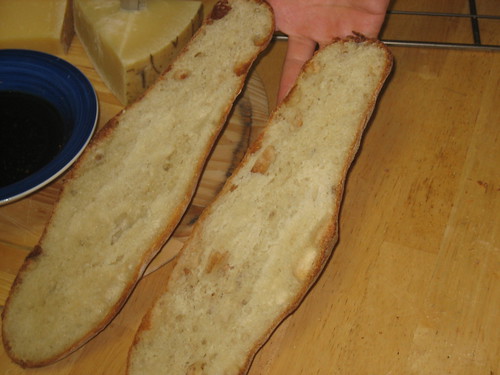
we didn't wait till everything was done baking before we started feasting:
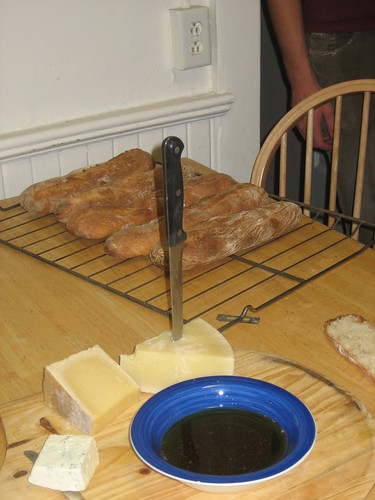
about half the gang:
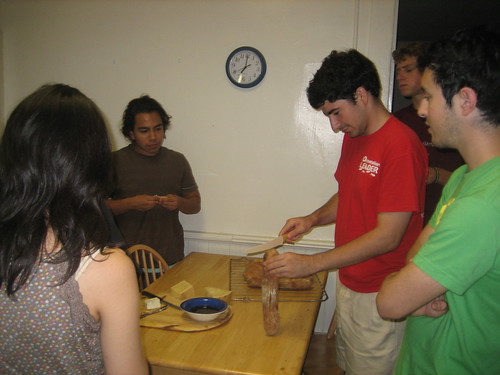
I've since loaned out most of my bread books to interested folks and have been asked to write an article about challah for Cornell Hillel's magazine (I'm not jewish, but I read everything Glezer's had to say about challah). We're kind of rogue baking club at this point, no real ties to the university and no nice kitchen to bake in, but that may change in coming weeks. Steve Kaplan, a cornell prof, just published a book "Good Bread is Back" and had a raucous spot on conan o'brien (who was kind of an ass, in my opinion). I'll hopefully be in touch with him this week and see if he'd be the faculty advisor of our group and then we could get some of that over abundant cornell money and maybe even some kitchen space.
Meanwhile, I've been doing some baking myself-and not blogging about it. Last week, I made a levain couronne to take to a pasta feast down the block. It was loosely based on the Tornato from artisan baking.
It was pretty giant (the peel is 14" wide):
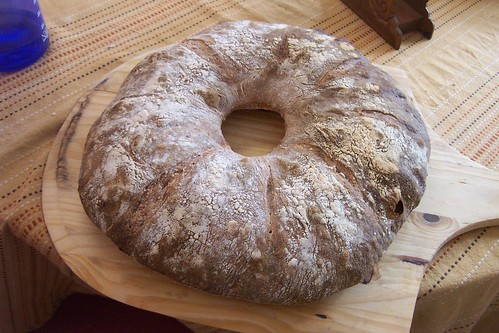
and also pretty awesome inside:
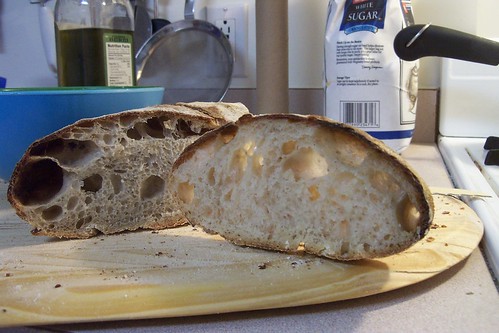
I have not been so proud of a loaf since the first time I made bread. Incredibly complex flavor, super moist crumb and a deeply caramelized crust. I served it with herb-oil and some asiago cheese; it was well received! Last week I also made 2 loaves of blue cheese and walnut levain based on pearl's walnut levain, which were tasty too.
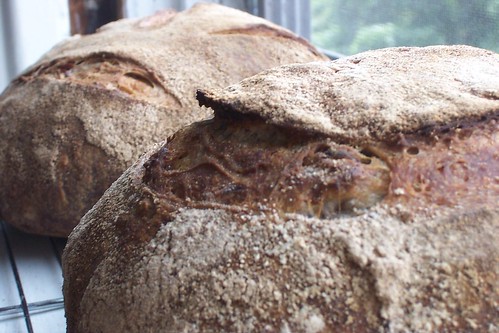
I've learned to bake around my homeworks pretty well, and hopefully won't have to slow down too much as the semester gets going. I'd like to still make my own weekly bread all year. That said the problem sets and programming assignments have started to roll in, so we'll see if I have any time to bake outside of Better Bread Better World. Even still, that would be okay with me- getting my friends hooked was very exciting!
-Ben













